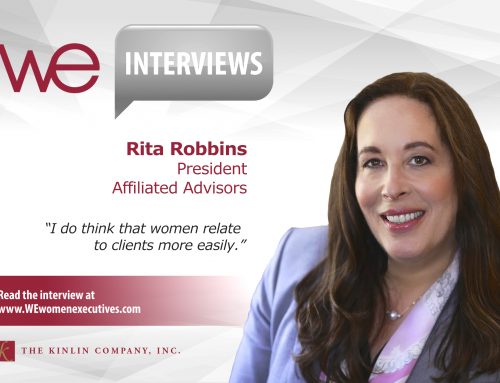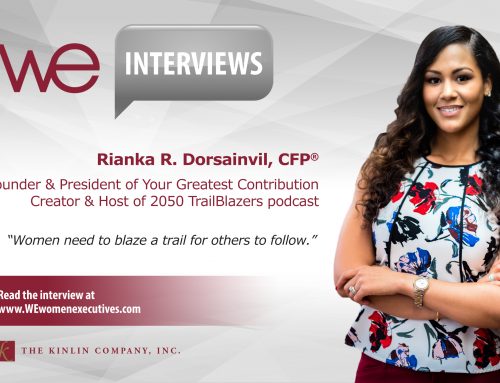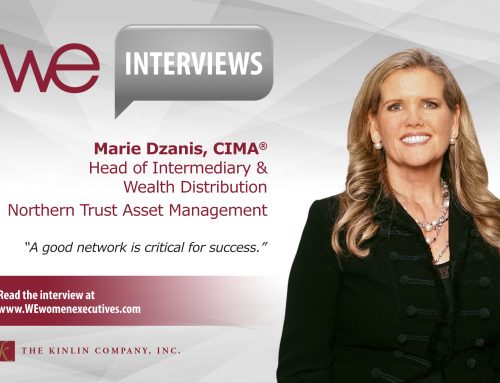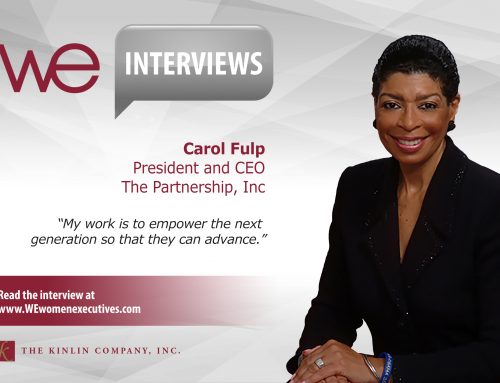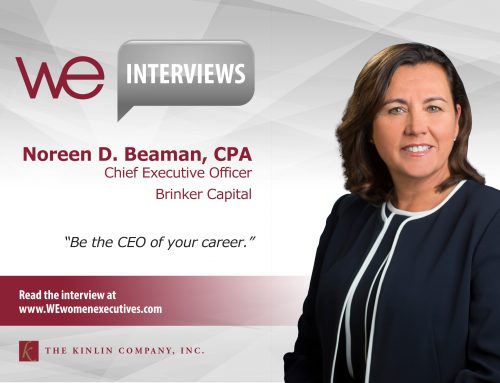 Lisa Cohen
Lisa Cohen
CEO
Momentum Partners, LLC
As CEO of the boutique research and advisory firm Momentum Partners, principal Lisa Cohen is passionately committed to helping clients drive business growth by providing front office executives and asset management firms with the information they need to make sound decisions. Cohen is supported in her efforts by a Chief Business Strategist and junior analysts who decipher data gathered by the firm.
While Momentum primarily serves asset management clients, it also caters to clients who work with asset managers, e.g., investment technology firms and retirement services providers.
The firm specializes in a trademarked research offering, Mometrix Reports™, which the company explains, are “designed to provide C-Suite Executives and Distribution Leadership with the independent information and market intelligence required to grow and retain assets under management in an increasingly challenging environment.”
Cohen launched Boston-based Momentum Partners in 2006, after working for more than a decade as an advisor to senior financial services leaders and as a senior level industry operating executive. Cohen was previously a Senior Vice President and Managing Director, Product Management, at Evergreen Investments (now part of Wells Fargo), and a Director with John Hancock Funds and John Hancock Financial Services.
I recently had the opportunity to sit down and chat with Cohen, and in Part Two of our talk, we discussed her feelings on what women must understand to get ahead in their careers, her commitment to helping her female counterparts, and the lessons she’s learned along the way.
A realization that women are ‘wired differently’
My next question to Cohen revolved around the recently much-debated topic of mentors and sponsors. As an entrepreneur for much of her career, Cohen has oftentimes not been in situations where formal mentoring or sponsorship opportunities were easy to find. I did notice, however, that she has long been an active member of organizations such as Women in ETFs, the College Club, and the Boston Club. I asked her what drives her involvement in these groups—a desire to foster business connections or the chance to interact with other women professionals?
“Both. Frankly, I’m a little disturbed at this point. When I graduated from college, there were many women in my class who went to Wall Street. There were economics majors who went into training programs and finance companies and were very deliberate about their paths. Yet most of them are no longer in the field, and when I go into client companies, I see very few young women in substantive roles.
“For example, I was recently quoted in a story about a company and afterwards the CEO, a woman, called and said, ‘I just wanted to thank you for your comments. They were so on-point. You really understand my company and the industry, and I was so struck that you’re a woman and a CEO as well that I had to reach out. We don’t know each other, but we know of one another now, so I just had to call and thank you and tell you that I think we should know each other and be in touch.’
“Women don’t do that enough. Men do that kind of thing all the time as a matter of course—they don’t have to like each other, they may end up competing for jobs and businesses and companies and staff, but they’re much better at identifying who’s smart, where it’s going, and what’s going to happen. They think about the world in a very transactional way, and women don’t, and in this industry it has cost us hugely. We’re in an environment where our wiring is different, and we need to understand that.
“Here’s another example. Several friends of mine, women, have been in leadership positions in big companies and have had similar experiences. After having been in the position for a time, they’ll find that executive leadership, above them, is suddenly putting pressure on them to deliver numbers, more than initially expected. A couple of times I’ve had a conversation that starts like this: “But I was hired to do more than just run the business, I came here to make the company a better place.” My reaction to that is, “Okay, time out. Respectfully, they didn’t hire you to make the company a better place—they don’t care about that; they hired you to make money for them. You’re running a P&L. This is not where you get to do that part of what you want to do. When we retire we can go make better places. Right now there are two paths ahead—one is staying with the company and doing it their way, and the other is moving on. They view hiring people and letting them go as a transaction, and that means we have to as well, or we’ll just be cannon fodder.’ Mind you, I don’t think that’s a good thing, it’s just reality. I care about my friends and their lives, and I am troubled that their goals of making the world a better place can create career risk. I don’t think that speaks well of our industry.
“My point is: Why aren’t women getting ahead? Because we’re not always thinking about what’s going on around us the way the rest of the people in the room are. That said, the fact much of the way that women naturally think is not valued and that the industry is suffering tremendously from poor ethical behavior, suggests that beginning to value “making the company a better place” ought to be on the business agenda.
“I think men and women fundamentally approach tasks, and the world, a bit differently—that’s my belief and my experience. I think that women are often handicapped because they don’t take the time to understand and think through how the men around them are going to respond. Instead, they act like women. That’s not right and it’s not good—our natural functioning is not, in fact, a handicap—but it’s a fact, and we can either acknowledge it and deal with it, or go find another business to be in until there are enough of us in this business that we can be ourselves.”
A commitment to proactively supporting other women
Cohen is unequivocal on the fact that, at least for the time being, women need to be more cognizant of the ways in which their male counterparts view a situation. Are there any other actions that women could take, I asked, that she thinks would help them realize greater success in financial services?
“I think relationships with each other are very important. In my opinion, the small number of women who are out there aren’t being very proactive about supporting one another. In my experience there’s a scarcity mentality out there, i.e., ‘If you have a job, that means I can’t have a job’ or ‘If your career is flourishing, that means mine won’t.’ Men certainly don’t think like that. I think women need to change their thought process. There’s plenty of business out there—in the asset management segment of the world, for example, we have $20 trillion of long-term assets under management. That’s plenty; we’re good. We need to focus on moving ourselves forward, reach out to one another, bring up young women, and push those who are already in management positions to bring them up further. And people who are in senior positions should use their power for good.
“We also have huge pipeline issues right now; we can’t manufacture 30-year-olds with five years’ experience in finance or asset management. We’re seeing progress in this area, but it’s mostly around awareness at this point, which is good, that’s the first step: acknowledge that you have a problem. But improvements need to be made in effective solution development. Broader awareness is great, but the issue remains: who are you going to hire? And once you’ve hired them, how are you going to keep them? That conversation still isn’t happening often enough, and it needs to take place.”
A focus on goals and a belief in intuition
As our conversation drew to a close, I asked Cohen if there were any lessons she’d learned that she would like to share with other women seeking to further their careers. She didn’t hesitate in her response.
- Understand that risk is a matter of perception
“Over the years, people have said to me, ‘You’ve taken so many risks, starting two businesses of your own.’ I have a very different reaction to that. From my perspective, I’ve had the opportunity to have multiple clients at any given time and, to me, that’s much less risky than having one paycheck. In other words, there’s more than one way to perceive risk. As humans, we tend to get stuck in how we perceive risks, so as you’re taking risks in your career, I believe it’s critically important to think about what you’re trying to accomplish.
“I think people, particularly women, can get very comfortable in roles and positions, working with products or markets that they know and like. But the industry is changing very rapidly, money and products are moving around, and if you want to move forward in your career, you’re going to be required to get out of your comfort zone.”
- Find a space that’s growing
“Much of the industry is in stasis mode right now and will be for a long time, so if you want your career to progress, you must plot very deliberately and put yourself in a place that’s experiencing growth.”
- Don’t ever disregard your gut
“When you work with people you like, the reason you like them is because there’s something there—a capability, a shared understanding, a shared perspective of the world. This is particularly true in client relationships–when you’re selling a new client and it’s a difficult relationship right from the start, it never gets better. The relationships that break down tend to be the ones that don’t start out well, and if your gut is telling you, ‘This doesn’t feel right,’ give yourself permission to walk away. Forcing a transaction or a relationship rarely works. Trust yourself to make that call; don’t waste your own time, because that’s all you have.”
- Be jealous of who you trust
“Be very thoughtful about relationships, particularly in the early stages of your career. I tend to be a really trusting person, which is a good thing in a personal relationship, but it can be a bit of a handicap in the business world.”
A delight in the ability to call the shots
My final question to Cohen was a simple one: do you enjoy your work, and if so, why? Her answer was refreshing in its candor.
“I love owning a business, and I have very much enjoyed working in the investment management industry. I’m the driver on the bus and I have the ability to change the direction it’s headed. For example, I like having the flexibility to modify the business to track what’s happening in the marketplace. When you’re inside a big company, even at a senior level, you just don’t have the ability to move quickly, to fix things and change products.
“That’s also the downside of course—the buck stops here. If the market changes, you have to change with it; you have to be flexible and adaptable and that can be challenging. Quite honestly, that’s different even from when I started this company; the pace of change has really accelerated. You have to keep learning and keep figuring out who’s doing what, what information is available and what you need to have for your clients, who you need to know, what you need to be aware of, etc. There’s a lot to keep up with and you must be responsive. The world demands it and to be successful, you have to live in that world.”

